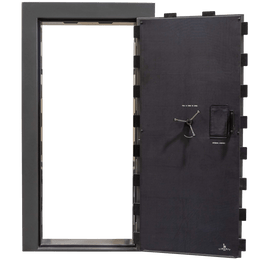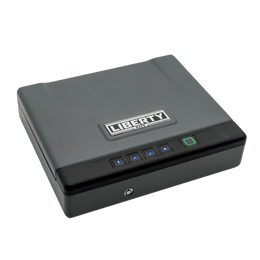If you want to start a heated argument and possibly be banned from any firearm, automotive, motorcycle, or watercraft forum, simply ask which oil is best. This topic is one of the most controversial and brings out the keyboard warriors like nothing else.
However, it is essential to understand the need for the correct oil for use on your guns (and cars, motorcycles, and other machinery), so it’s worth discussing what gun oils might be best for you.
In this article, we’ll cover the primary needs for and functions of gun oils and then let you know some of our favorites in five distinct categories.
Table of Contents
- What are gun oils, and why do we use them?
- What are gun oils made from?
-
Our favorite gun oils and lubricants.
- Best general-purpose light gun oil: Rem Oil (Remington).
- Best non-toxic (and possibly smelliest) gun oil: Ballistol.
- Best hot/hard-use lubricating gun oil: Slip 200 EWL.
- Best overall, do-it-all CLP (Clean/Lubricate/Protect) gun oil: Break Free.
- Best lower-budget CLP – Birchwood Casey Synthetic Gun Oil.
- Best budget gun oil: Mobil 1 synthetic motor oil.
- Store your guns and accessories in a Liberty Safe.
What are gun oils, and why do we use them?
Guns are machines typically made from two or more materials: steel, aluminum, and scandium alloys, polymers, and wood. All these materials benefit from the appropriate use of quality oil; some require it. The simplest firearm action types are single-shot muzzle-loaders, breech-loaders, or break-actions. Still, even these relatively basic actions employ steel lockwork, springs, or latches, all of which pivot or slide and need appropriate lubrication for proper function and corrosion resistance.
Aluminum, stainless steel, and other alloys used in firearms manufacture are often somewhat corrosion-resistant. Still, all perform better when treated adequately with anticorrosive gun oil or other surface protectant. Carbon steel is one of the most common materials traditionally used in the manufacture of firearms, and absolutely requires the regular application of a good oil to prevent rusting and damage.
Another component of many firearms that requires regular maintenance and the application of good oil is wood stocks, grips, and forends, particularly if they have not been sealed with a modern polymer finish. Oil-finished or wax-finished wood components look and feel wonderful, but the wood itself, if not properly maintained, can dry out, shrink, and crack. Many antique or historical guns have been damaged due to improper maintenance or neglect, as the metal corrodes and the stocks dry out, shrink away from the receiver, and crack.
If you own any firearm made of steel and wood, do yourself (and your guns) a favor and learn how to properly clean and lubricate your firearm, and if it’s an important old gun (historically or sentimentally), learn how to conserve and protect your firearm from damage.
What are gun oils made from?
Historically, many different types of oils and fats were used to lubricate and preserve firearms, including sperm oil (from the head of sperm whales), whale oil (made by boiling down the skin and blubber of whales), bear oil/grease (rendered from the fat of bears), mutton/lamb tallow (rendered sheep fat), vegetable/plant oils like olive oil, mineral oils, and even formulations including so-called banana oil (amyl acetate).
Although animal and vegetable fats/oils are still often used in muzzleloading and other historical shooting today, the vast majority of modern gun oils are made from highly refined petroleum or are synthetic formulations that mimic petroleum lubricants’ properties while offering some superior penetration, anti-wear, viscosity, anti-evaporative, and/or anti-corrosion characteristics, depending on your preferences, experiences, opinions, and budget.
Our favorite gun oils and lubricants
There are hundreds of quality gun oils, and truthfully most of them will work acceptably well for most people’s purposes. So, we’ve divided our top picks into five categories (plus a bonus) to help you narrow down your choices and help you find an oil that’s right for your intended use.
Best general-purpose light gun oil: Rem Oil (Remington)
Rem Oil (a mineral-oil-based formula with Teflon®) has been one of our favorites for decades, as it’s relatively inexpensive and thin in viscosity. It works well as a light-duty lubricant and surface protectant for all firearms. Remington says, Rem Oil is the most versatile gun oil you can buy. The same great lubricant since 1913, the advanced formula cleans, lubricates and protects your valuable firearms so they’ll keep running smoothly and looking like new. Rem Oil penetrates into the smallest metal pores, then leaves a tough, long-lasting film to help reduce metal-to-metal wear. Quickly displaces even microscopic traces of water for advanced moisture resistance and rust protection.
We didn’t know Teflon was around in 1913, but whatever.
We don’t know about Remington’s claims. Still, we have found that Rem Oil (particularly the aerosol version–which contains no CFCs) is great for hosing out a dirty/hot firearm and getting it running again, blasting grit and fouling out of shotgun trigger groups that are not intended for user disassembly, and general lubrication in cold weather where a thinner/lighter oil is desired. It also works great to lightly lubricate the magazine tubes of semi-auto shotguns like the Remington 1100 series and the original Browning Auto 5. A can of Rem Oil is always on our shooting bench.
Best non-toxic (and possibly smelliest) gun oil: Ballistol
Ballistol (a water-soluble, mineral-oil-based formula) has existed since 1904.
Ballistol’s maker says, The company made a breakthrough at the turn of the century when the German Imperial Army needed an all-round oil with very special properties: a multi-purpose oil that would be suitable for all the materials of a weapon – for cleaning, care, and conservation of the metal parts, wooden stocks, and leather straps. At the same time, it was to be used by soldiers as a wound oil for smaller injuries, chaps, and abrasions.
That’s a tall order, but in addition to its application as a gun cleaner and oil, Ballistol was used as a wound dressing and even prescribed by some doctors to be taken internally for various maladies in the early 20th century. Since the formula is non-toxic and environmentally safe, this was not a serious problem. However, we certainly wouldn’t recommend taking Ballistol internally, and there are far better wound dressings today.
One of Ballistol’s somewhat unique and very valuable properties is that it is water-soluble, which not many gun oils are. This is particularly useful when cleaning black powder firearms, which benefit from mixing Ballistol with water to neutralize the corrosive salts. Then, as the water evaporates, the oil is left to protect the surface from corrosion. Some old-timers call this concoction Moose Milk due to its milky, opaque appearance.
Ballistol’s funky, old-shoe-leather-and-black-licorice smell puts some people off, but we actually like it, and it’s great as a light-duty general-purpose gun cleaner, lubricant, and leather/wood treatment.
Video: BALLISTOL GUN CLEANER Review
Best hot/hard-use lubricating gun oil: Slip 200 EWL
Slip 2000 EWL (Extreme Weapons Lubricant) is a non-mineral, non-petroleum-based synthetic metal treatment originally designed for large chain guns or heavy machine guns where anti-wear and lubrication properties in extreme heat are paramount. The company says it has incorporated advanced technology additives to enhance film strength and anti-wear properties and that the formula penetrates the metal pores and bonds to the surface of the metal through physical absorption, reducing surface tension and friction between moving parts. This minimizes wear and the buildup of wear-related debris.
We’ve found Slip 2000 EWL works great on hot-running semi-autos like AR-15s and full-auto firearms. We like how slippery this stuff is and how it doesn’t dry out or attract as much dust or dirt particles as some petroleum products. Once applied correctly, you need very little (which is good because this stuff costs upwards of $10 an ounce). The company says that even when the surface is wiped dry to the touch, the formula is still present and lubricates the metal parts from within the pores of the weapon. They also claim Slip 2000 EWL does not evaporate off because no carriers are needed for continued protection.
Try it out, and we think you’ll like it.
Note: if you’re on a budget, check out Militec-1 oil, which is a metal treatment that has a similarly excellent reputation and lubricity properties compared to Slip 2000, but at roughly a third to half of the price.
Best overall, do-it-all CLP (Clean/Lubricate/Protect) gun oil: Break Free
We've tried a bunch of CLP formulas over the years, and they all have worked acceptably well at their intended task, which is to be a do-all formula for general gun cleaning, lubrication, and corrosion resistance, without having to buy multiple formulas. For museum-quality rust prevention, we'd favor something like Renaissance Wax. We'd probably pick a dedicated gun-cleaning solvent for a natural deep scrub of the bore, but for convenience and overall utility, a good CLP really can be most things to most people.
Our favorite is Break Free CLP (up to $2.50 per ounce, depending on volume), well-liked and widely used by civilian and military customers.
The company says, Break Free CLP (MIL-SPEC 63460F Type-A) is more than just gun oil. Trusted by Agencies and Military around the world, it was the first to pass MIL-SPEC 63460. CLP cleans burnt powder residue and other fouling materials from the gun's bore, moving parts, and exterior. The formula also reduces friction and protects against corrosion. CLP will not break down under extreme temperatures or pressure and is made from the highest-quality synthetic oils.
Best lower-budget CLP – Birchwood Casey Synthetic Gun Oil
At about $12 or less for 10 ounces, Birchwood Casey's Synthetic Gun Oil (we like the aerosol) is a good bang for your gun-oil buck.
It's available at most gun shops and sporting goods retailers and the company says it won't gum up or lose its viscosity even under extreme temperature variations from -55 degrees to 300 degrees Fahrenheit, and that it gives metal parts maximum lubricity.
At the same time, the formula's natural solvency reliably cleans as it oils. It also has a low evaporation rate to protect against rust.
Best budget gun oil: Mobil 1 synthetic motor oil
Our grandpappy wisely taught that any oil is better than no oil (for guns and cars) and that only a fool pays more for something than is necessary. Many people have found that commonly available engine oil makes an effective gun lubricant, and it makes sense.
As mentioned above, guns are machines, and the pressure and heat demands of today's engine oils likely far exceed anything you can subject your firearm to. Mobil 1 is one of the first widely available fully synthetic engine oils, and it works well as a general firearm lubricant.
It may smell a little (it smells like motor oil), it may potentially over-soak into wood stocks (so be aware of that), and it doesn't excel at surface/rust protection, but at around $0.17 per ounce, it's among the least-expensive high-quality oils around. You'll also want to read the cautions and keep it off your skin just to be safe.
Choose whatever viscosity makes the most sense to you, use a Q-tip or needle dropper to lubricate sliding or pivoting metal parts inside your guns sparingly, and we're betting you'll be pretty satisfied. We'd add a dedicated surface rust-preventative for long-term firearm storage, but for general firearm lubrication, a quart of Mobil 1 will likely last you a lifetime.
Store your guns and accessories in a Liberty Safe
Once your firearms are properly cleaned, lubricated, and protected against corrosion, do the right thing and keep them secured in a quality gun safe or handgun vault. Not only does this help prevent theft, unauthorized access, and fire damage, but a properly humidity-controlled safe is essential for preventing environmental damage to your guns due to overly dry or humid conditions. Check out our complete online catalog, or visit a Liberty Safe dealer near you.
*Made in the U.S.A. from U.S. and Global Parts.










